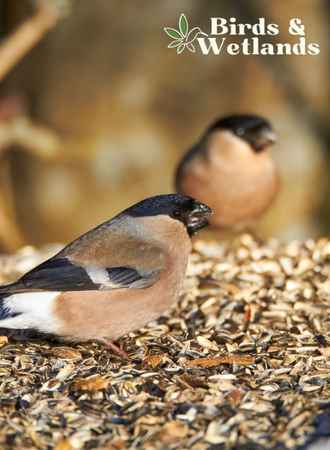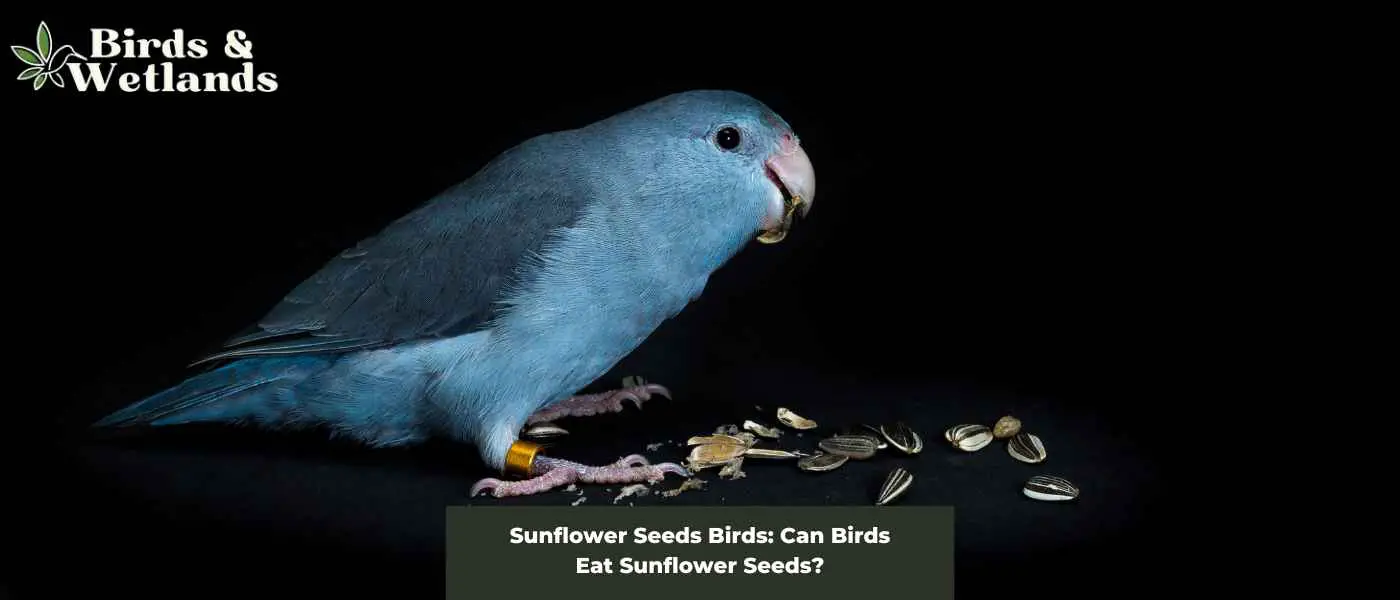Feeding birds sunflower seeds might be just the thing for you! Not only is it a simple and easy way to provide birds with the nutrition they need, but it’s also a great opportunity to observe these beautiful creatures up close.
Key Takeaways on Sunflower Seeds for Birds
What birds eat sunflower seeds?
One of the best ways to attract birds to your backyard is by providing them with food. Seed-eating birds are a popular group of backyard birds, and sunflower seeds are one of their favorite foods. All sunflower seeds are harvested from the sunflower plant.
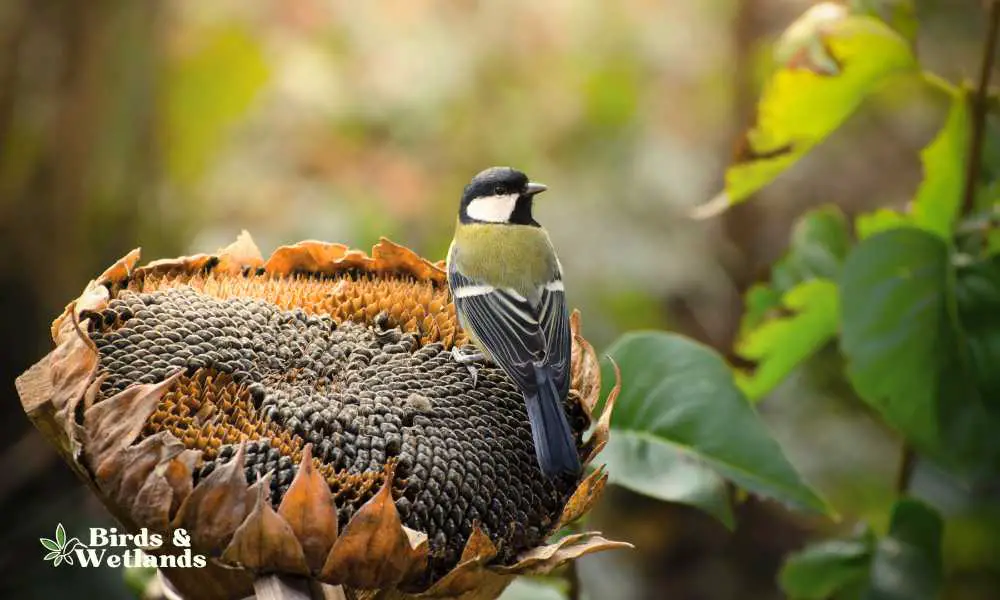
Here’s a short list of the most popular garden birds that eat sunflower seeds.
- American Goldfinch (Spinus tristis) – These small, bright yellow feeder birds are frequent visitors to feeders and are particularly fond of seeds. They also enjoy other small seeds like thistle, nyjer, and millet. American Goldfinches delight backyards as they are beautiful, and active and sing a sweet, distinctive song.
- House Finch (Haemorhous mexicanus) – This finch is a common sight at backyard feeders across North America and enjoys seeds as part of its diet. They also feed on millet, nyjer, and other small seeds. House Finches are known for their beautiful red plumage and sweet, warbling song, making them a popular backyard bird.
- Dark-eyed Junco (Junco hyemalis) – These sparrows are common throughout North America. They are often seen feeding on the ground beneath a bird feeder where seeds have been scattered and left by larger birds. They also enjoy eating millet, cracked corn, and other small seeds. Dark-eyed Juncos are great garden birds as they are easy to attract and are known for their charming, tinkling song.
- Northern Cardinal (Cardinalis cardinalis) – These strikingly beautiful birds are regulars at backyard bird feeder spots and will readily consume seeds. They also eat safflower, cracked corn, and millet. Cardinals are popular garden birds due to their bright red plumage, distinctive crest, and clear, melodious song.
- Blue Jay (Cyanocitta cristata) – Known for their striking blue coloration, these birds are common in eastern North America and enjoy sunflower seeds. They also eat other seeds such as peanuts, cracked corn, and suet. Blue Jays are a treat in backyards due to their stunning appearance, raucous calls, and lively, curious nature.
- Black-capped Chickadee (Poecile atricapillus) – These small birds are frequent visitors to bird feeders. They have a particular fondness for sunflower seeds. They also feed on nyjer, millet, and peanuts. Black-capped Chickadees are popular garden birds due to their adorable appearance, cheerful songs, and acrobatic antics.
- White-breasted Nuthatch (Sitta carolinensis) – These birds are known for their acrobatic abilities. They are often seen climbing down trees headfirst. They will also visit feeding ports and bird feeders for sunflower seeds, suet, and peanuts. White-breasted Nuthatches are a pleasure in backyards due to their unique appearance, amusing behaviors, and distinctive nasal calls.
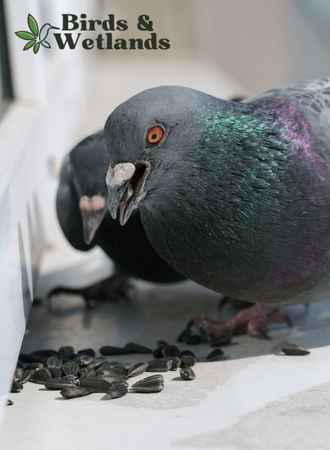
Are sunflower seeds good for birds?
Sunflower seeds are a popular bird food and they provide our feathered friends with many nutritional benefits.
High Nutritional Value
Sunflower seeds are highly nutritious for most birds. They are an excellent source of energy, protein, and essential fatty acids, which are vital for birds’ health and well-being.
Birds require high-energy foods, especially during winter, to maintain their body temperature and survive the cold.
Sunflower seeds contain approximately 40% fat, providing a high energy level. They also have a high protein content of around 20%, which helps birds to build and repair their muscles, feathers, and other tissues.
Moreover, sunflower seeds are a good source of vitamin E, which supports healthy immune function.
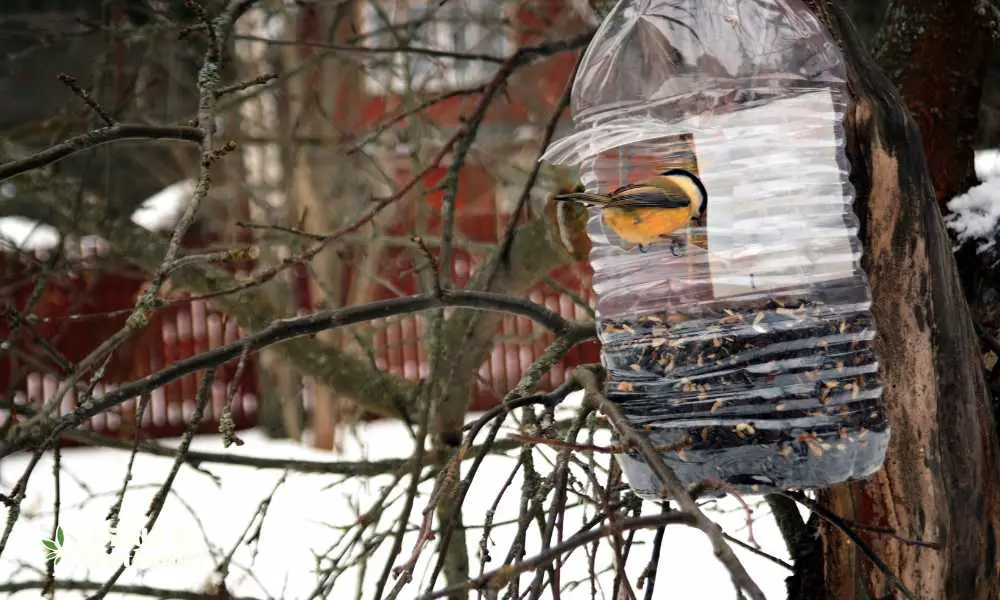
Attract a Variety of Birds
Sunflower seeds are a popular bird food, and many bird species love them. Different birds have different feeding preferences, and by offering sunflower seeds, you can attract a wide variety of birds to your backyard.
For example, finches and sparrows are especially fond of sunflower seeds, and chickadees and titmice happily crack open the shells to get to the kernels. Jays and woodpeckers will visit your yard if you offer them sunflower seeds.
By providing a variety of feeder types, such as tube feeders, hopper feeders, and platform feeders, you can cater to different bird species and attract even more birds to your backyard.
Convenient to Use
Sunflower seeds are easy to use and widely available in stores. They are available in shelled or unshelled forms, so you can choose what works best for your feeder setup. You can offer sunflower seeds in a variety of feeders, such as tube feeders that dispense the seeds one at a time, hopper feeders that hold a large volume of seeds, or platform feeders that allow multiple birds to feed at once.
Many birds eat sunflower hearts so you can have a sunflower seed mix with other bird seed mixes to create a custom blend that meets the nutritional needs of the birds in your area. Sunflower hearts are the meat of the seeds without the inedible shell.
You can even offer more hulled or whole seeds during nesting season. Birds need all the food they can get at this time of the year.
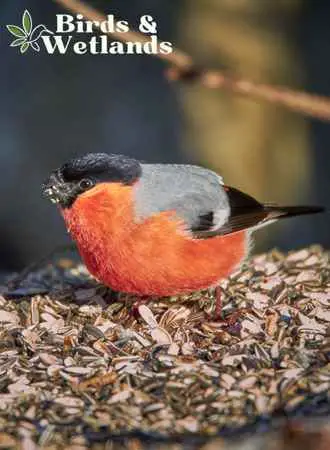
Clean and Mess-Free
Hulled sunflower seeds are relatively clean and mess-free compared to other bird foods, such as suet or mealworms. They don’t leave behind any seed shells or husks, which can make cleanup easier.
Pre-shelled sunflower seeds may produce a small amount of debris, but this is generally minimal and easy to manage. Additionally, birds tend to be less messy eaters when feeding on sunflower seeds, which means less seed is wasted or scattered on the ground.
Affordable
Different types of sunflower seeds are an affordable bird food option, especially if you buy them in bulk. This makes it easy to offer birds a nutritious food source without breaking the bank. These shelled or hulled seeds are widely available in stores, and you can often find them in large quantities at a reasonable price.
Moreover, whole sunflower seeds are a popular bird food, so many different feeder options are available. You can find one that fits your budget and meets the needs of the birds in your area. Alternatively, you can buy mixed seed instead.
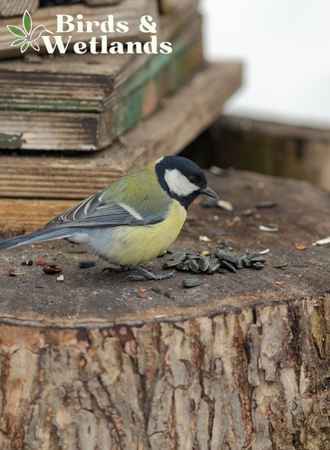
What is black oil sunflower seed?
Black oil sunflower seeds are a type of sunflower seed known for their rich nutritional content, distinct appearance, and numerous health benefits. It is processed for sunflower oil. Seed eating birds love these seeds and they are a healthy snack.
Black sunflower seeds or black oil seeds are different from the traditional striped sunflower seeds in that they have a higher oil content and a thinner shell, making them easier to crack open and consume. They are also a larger and plumper variety of sunflower seeds with a distinctive black color.
In terms of nutrition, black oil sunflower seeds are a rich source of healthy fats, fiber, protein, and various vitamins and minerals. Specifically, they are high in vitamin E, magnesium, and selenium, all of which have been linked to numerous health benefits, such as improved heart health, reduced inflammation, and improved immune function.
What are striped sunflower seeds?
Striped oil sunflower seeds are a popular type of birdseed for feeding birds. These seeds resemble traditional black oil sunflower seeds but have distinctive stripes on their shells. They are a nutritious and energy-rich food source for many bird species. They are commonly available at pet stores, garden centers, and online retailers.
Like any other sunflower seeds, striped varieties are high in fat, protein, and fiber, making them an ideal food source for birds, particularly during the winter when food can be scarce.
One advantage of striped seeds is that their striped shells can be easier for birds to crack open than solid-shelled seeds. This can be especially helpful for smaller birds struggling with the larger, tougher shells of some other types of seeds.
Many different bird species are attracted to striped oil sunflower seeds, including finches, chickadees, cardinals, sparrows, mourning doves, blue tits, and woodpeckers. These seeds can be offered on their own or mixed with other types of birdseed, such as millet or safflower seeds, to provide a diverse and balanced diet for birds.
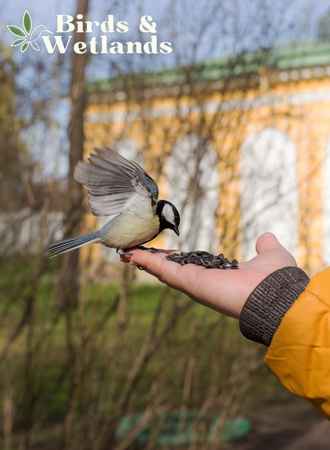
Can birds eat too many sunflower seeds?
Birds can eat too many sunflower seeds, leading to obesity and related health problems. A varied diet that includes different types of seeds, fruits, and insects is essential to meet the nutritional requirements of birds.
Can birds eat roasted sunflower seeds?
Yes, birds eat roasted sunflower seeds they were roasted without salt or other harmful ingredients. Most roasted seeds are cooked or treated for human consumption, so read labels on human snacks before feeding them to your birds.
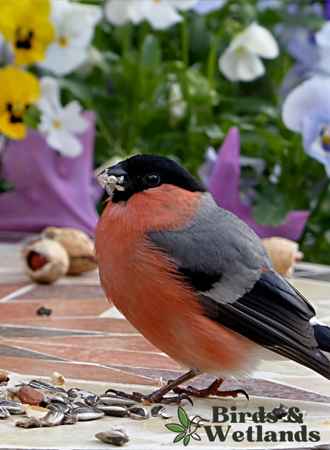
How to feed sunflower seeds for birds
Feeding sunflower hearts can attract more backyard birds. Here’s how:
- On a platform feeder — Spread hulled sunflowers evenly on a flat platform feeder to provide an open feeding space for birds to land and access the seeds easily.
- In a tube feeder or hanging feeder — Fill a hanging feeder with sunflower seeds and suspend it from a tree branch or a pole at a height that is easily accessible to birds.
- Scattered on the ground — Scatter sunflower seeds on the ground in an open area where ground-feeding birds can forage and feed naturally. Be sure to avoid placing the seeds near areas where predators may hide, such as bushes or tall grass. Some birds discard the husks and bits of seeds which other birds will snack on.
- Bird table or ground feeders — To use a ground feeder to feed birds sunflower seeds, first choose a suitable feeder and place it on a flat and level area. Fill the feeder with high-quality, fresh sunflower seeds, and monitor it regularly to ensure that it is not empty. Also, provide a nearby source of fresh water for the birds to drink and bathe in, and enjoy watching the birds that come to visit.
